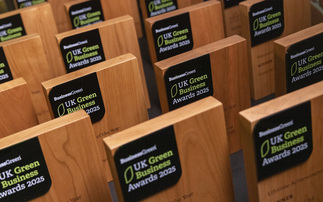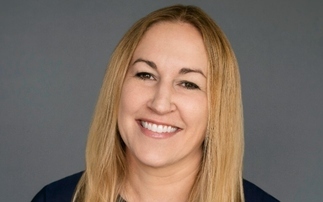How can the media best communicate the impacts and implications of climate change? UCL's Freya Roberts assess the raft of views and expertise at the recent Net Zero Festival
I recently learned that the phrase climate change was mentioned 12,715 times in television shows on UK channels during 2020. That's not even including daily news programming.
Instinctively, I've got no idea if that's a lot or a little, but it does demonstrate that media content producers are among the most powerfully placed entities to influence how whole societies talk about and think about climate change.
They can do this of course through the type of content they produce. The appetite is there: Ipsos Mori data suggests 84 per cent of the UK public is concerned about the climate. But what kind of climate stories do they want - and more importantly need - to see?
Understanding what the people want
At the recent Net Zero Festival, several high profile speakers commented on what the public needs from climate communication right now. For Gaby Hornsby, TV lead for sustainability at the BBC, the time has come to "go beyond laying out the problem and start laying out the solutions".
Having gathered feedback from TV audiences, she commented that "there's a really big proportion of the population who want stories of hope or possibility on climate change".
By contrast, the majority of media content we encounter today frames climate change as a threat. Search news websites or TV streaming services and you're certain to find plenty of ‘code red for humanity' warnings and steady streams of climate disaster movies.
Hornsby noted, equally, that certain groups of the public, such as climate proponents, still want more warning stories on climate change to shock us into action. But the media has been talking about climate change in this way for more than 70 years, and the public is still struggling to answer the perennial question: 'but what can I do about it?'
Storylines that speak to people
If a change to current practice is called for, what might that be? Wolfgang Blau, another speaker at the Net Zero Festival, called for "stories about actions, not just about issues - because that's what we respond to as people". Blau co-founded the Oxford Climate Journalism Network to help journalists, editors, and media executives develop their coverage of climate change.
Both he and Hornsby, in their respective panel sessions, nodded to a concept called action-based storytelling. Its premise is as follows: produce content which shows how people like us can do something to minimise or adjust to climate change. Not just can do, but are doing something.
The idea originates with Dr Kris De Meyer from the UCL Climate Action Unit. De Meyer spells out what makes a good action-based story: "They ideally contain a person on a real-life journey of discovering how to take action. The stories explore what barriers that person faced, how they overcame the challenges, and the positive outcomes that resulted." Essentially, action-based stories are a 'how-to guide', akin to a recipe in a cookbook.
An alternative to totally f*cked or totally fine
The concept of action-based stories offers a rare alternative for climate communicators. Currently, they're stuck choosing between scare stories and 'solutions journalism' - the latter also having plenty of critics.
For example, also speaking at the Net Zero Festival was Josephine Moulds - a finance & fossil fuels reporter from the Bureau of Investigative Journalism - who warned against telling positive stories of climate change solutions because they can "lull people into a false sense of security".
Fellow panel member and former BBC science editor David Shukman also added: "There is a risk of people thinking there is one easy solution to make the whole climate nightmare go away."
The distinction between action-based stories and solutions stories is important. While the latter "props up the status quo and lets people off the hook" - as Mould put it - the former is about the challenge of navigating all the hurdles of climate action, and demonstrates everyday people doing the doing.
The first rule of fight club is…
Another way to talk about climate change is, perhaps bizarrely, not to focus on climate change at all. Numerous speakers at the Festival stressed the potential for communicators to focus on the co-benefits of climate action - an idea which seems to be the flavour of the month. Its champions included Climate Change Committee CEO Chris Stark, who during his keynote speech opening the Net Zero Festival, argued: "Cleaner air, green jobs, less congestion, energy security… these would be good things to pursue, right?"
Other ‘co-benefits supporters' at the two-day event included environmental psychologist Lorraine Whitmarsh, who explained that "if we focus on the costs of net zero rather than benefits we might be missing a trick", and sustainability leadership expert Beverley Cornaby, who presented research showing how policy packages that help decarbonise peoples' homes simultaneously address the cost-of-living crisis.
The new normal
The focus on co-benefits draws attention away from climate action being something we do based on our values, and into the realm of just making sensible, logical life choices. It makes doing the pro-climate thing the norm. And normalising climate change is another thing the media sector is already doing with some success.
Climate change is seeping into all sorts of content - from Sky Sports football coverage to the Great British Sewing Bee. As ITV's head of sustainability Jeremy Mathieu explained at the Net Zero Festival, one of the channel's success stories of 2022 was increasing viewers willingness to buy preloved clothes when eBay sponsored the broadcaster's hit show Love Island.
In the media, as elsewhere, there are many paths to the top of the mountain.
So what now?
For decades now, the media has successfully been doing its duty to inform and educate the public about climate change. Stories told on TV and in the newspaper have helped make the public aware of the risks humanity faces.
And while there is still a place for this content, it's not the only type of content the public needs to see. Also speaking at the Net Zero Festival was Financial Times journalist Henry Mance, who nearly summed up the problem: "You can't expect people to go and seek out stories of doom every day… We need to engage with people, with the struggles they are facing on climate change."
The media has an opportunity to help people discover what they can do about climate change. Will it be challenging? Maybe. Is it possible? Entirely.
Freya Roberts manages climate change projects at University College London. She was climate risk communication fellow for COP26, and a former researcher and writer for Carbon Brief.







